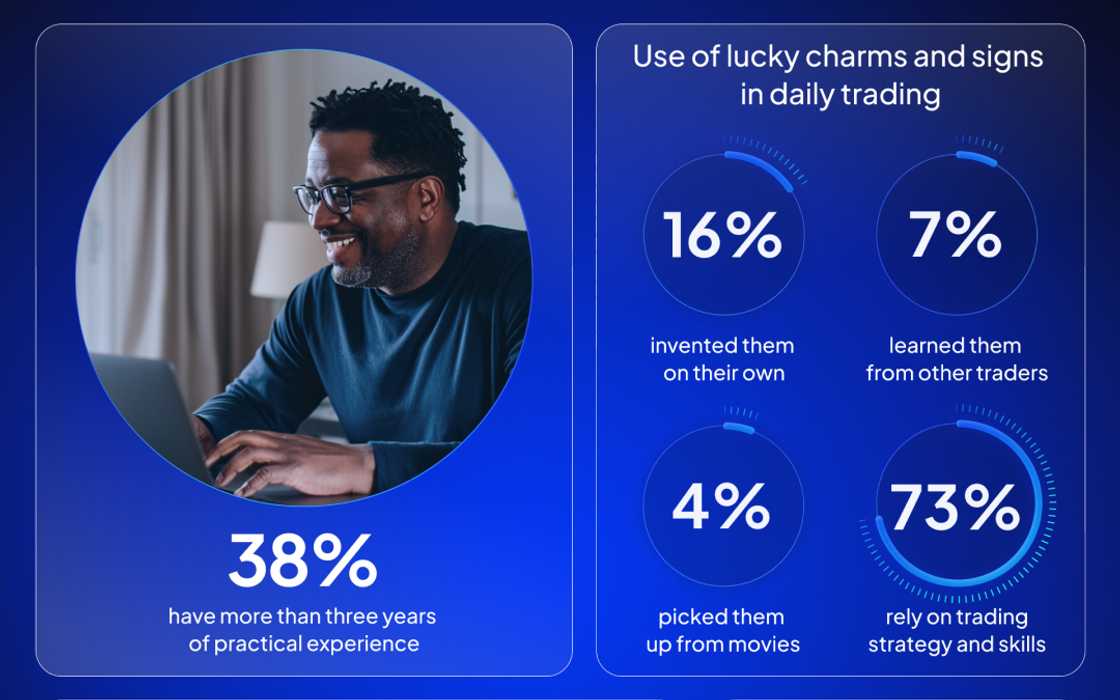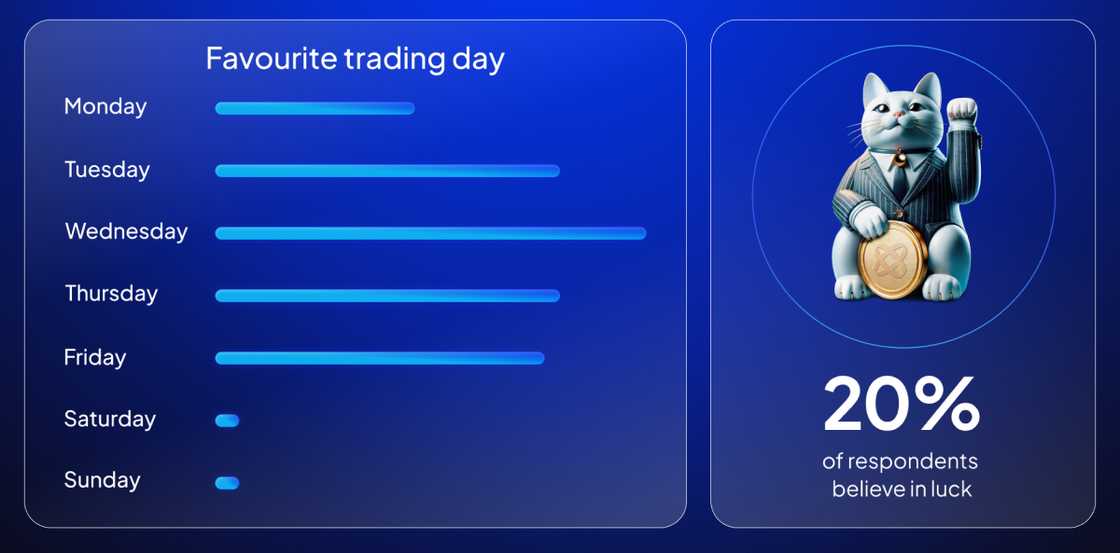85% of Nigerian traders don't attribute success to luck, Octa's survey reveals
Octa, a financial broker, conducted a survey about traders' attitudes to lucky charms, rituals, and traditions as a part of its global campaign ‘The lucky ones’. How do traders keep luck on their side? What objects and practices do they use to improve trading outcomes? Are they concerned about good fortune or inclined towards ‘rational thinking’? In this article, we will examine some noteworthy results of this survey, which provide a valuable perspective into the traders' mindsets.
In its global survey, ‘The lucky ones’, Octa aimed to reveal whether traders set hopes on luck and everything that surrounds it, and if not, what other factors they consider critical for achieving success. Here are some of the key takeaways from the survey.

Luck is off the radar, but some rituals remain
In Nigeria, the average age of respondents amounted to about 30 years. On average, each of the participants has been actively trading for more than two years, with 39% having more than three years of practical experience under their belt. This fact can explain the rational approach they tend to assume towards decision-making and self-assessment in trading.
However, in some cases, everyday rituals and practices related to some higher powers do come up among the answers. About 20% of respondents professed to believe in luck. Given that, it would be premature to strike out the less rational element in the traders' mindset altogether—it still exists and plays the role of reassuring and guarding the peace of mind before, during, and after trading sessions, if nothing else.
While some traders engage in personal rituals such as verbal positive affirmations, meditating, listening to music, or using astrology and lucky charms, nearly half of the respondents do not participate in these activities. Those who do admit that these rituals boost their confidence more by the force of habit than anything else. In general, it is safe to assume that the vast majority of Nigerian traders generally do not attribute their best trading outcomes to any habitual acts or lucky charms.
Among those using lucky charms and signs in their daily trading sessions, 16.2% claimed they devised them independently, 6.7% learned them from other traders, and 4% picked them up from movies. On the other hand, most respondents said they put more faith in their wise use of trading strategy, hands-on experience, and skills, and pay very little attention to the attributes of luck, regardless of their form.
Favourite days of the week
Interestingly enough, Nigerian traders also demonstrated skepticism towards the idea that some days of the week are better for trading than others. In other countries covered by the survey, most respondents favour Wednesdays and Thursdays as the days when trading activity is usually at its peak, and tend to schedule their trending sessions for these two days.
This strong preference has a logical rationale behind it. According to Ambrose Ebuka, brand ambassador for Forex education, Wednesday is when the US Federal Reserve announces its interest rate decision, which tends to send ripples throughout the global financial market. In the same vein, Thursday is considered a favourable trading day, as it often follows the dynamics established on Wednesday. As such, it seems more predictable than other days of the week. However, in Nigeria, most traders reported that no particular day is more favourable for trading than any other.

Skills above luck
Many Nigerian traders place significant importance on monitoring social and political events to inform their trading strategies. This focus on fundamental analysis involves keeping abreast of news reports and economic indicators, which can affect market movements. By understanding the broader economic context and staying updated on relevant developments, traders can anticipate market trends and make more informed decisions.
The survey results also show that Nigerian traders believe in their abilities, knowing that success in trading depends entirely or mostly on the skills and strategies they employ. This sentiment is particularly strong among experienced traders who have developed effective strategies over the years. Only a small fraction (7.6%) believe luck is a significant factor in achieving trading success, indicating that this belief may be more common among less experienced traders.
Conclusion
Octa's survey showed that Nigerian traders are very rational and knowledge-driven in their trading pursuits, which can be attributed to the extensive wealth of experience the participants possess. This approach to trading works best in conjunction with modern tools. OctaTrader, Octa's proprietary trading platform, offers traders a customisable analytical hub seamlessly integrated into the application. It promotes confident, data-driven decision-making and allows traders to validate their choices by tapping into a feed of timely and curated expert content put together according to their asset preferences and trading style.
Octa is an international broker that has been providing online trading services worldwide since 2011. It offers commission-free access to financial markets and various services already utilised by clients from 180 countries who have opened more than 42 million trading accounts. Free educational webinars, articles, and analytical tools they provide help clients reach their investment goals.
The company is involved in a comprehensive network of charitable and humanitarian initiatives, including the improvement of educational infrastructure and short-notice relief projects supporting local communities.
Octa has also won more than 70 awards since its foundation, including the ‘Best Forex Broker Nigeria 2022’ award from Global Banking and Finance Review and the ‘Best Online Broker Global 2022’ award from World Business Outlook.
[Sponsored]
Source: Legit.ng


